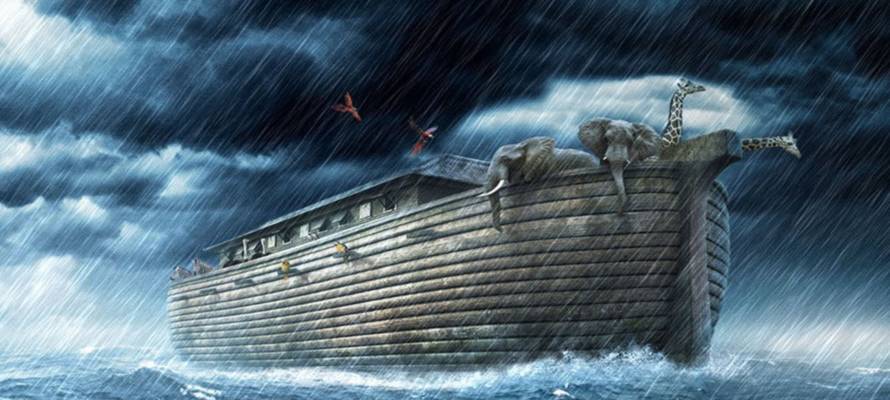Thanks to the Jewish commentators, we know, in hindsight, why God decided to withhold children from Noah.
Everyone knows the story in this week’s Torah portion. It’s “Noah” (Genesis 6:9-11-32) and the story of the flood. Almost everyone in the world was evil and corrupt, so God decided to destroy the world. The rest is history. Literally.
I would like to discuss a less-known item in this week’s reading. It is something that only the most keen and observant readers of the text would possibly realize.
The Torah tells us that Noah was 500 years old when he had his three children – Shem, Ham and Yafet. But if you look carefully at the text, you will notice that most people were having children at about 100 years of age. As such, it took Noah five times longer to have children than most other. Why is the righteous Noah forced to suffer through childlessness, while his neighbors were raising families?
The commentators explain that God was actually doing Noah a favor by withholding offspring from him. This is because if Noah’s children had been born a few hundred years earlier, they likely would have turned out to be wicked (like most everyone else), and God would have had to kill them along with the rest of the world. On the other hand, had they remained righteous, like their father, Noah may have had to build several arks to accommodate them and their families. As such, God arranged it that Noah’s children would be born shortly before the flood, so that even if they would turn out to be wicked, they would be “minors” and not subject to penalty for bad deeds.
Thanks to the Jewish commentators, we know, in hindsight, why God decided to withhold children from Noah. But Noah did not have this information. He was simply Mr. Childless. He was probably angry at God. He may have been questioning God’s judgment and sense of justice. And this may have even gone on for 400 years. What are we to make of this?
The answer is the same answer that is to be given any time we do not understand God’s actions. A person of faith must simply concede that we do not know God’s plans. God has His calculations. His ways are not ways that we understand. In this case, He knew that it was best for Noah that he not have children until shortly before the flood. It was a favor in disguise, as are so many challenges that come our way.
The Jewish outlook is that “Everything that God does is ultimately for the good” [Talmud]. We do not always know what the good is, and in some cases, it may even take 400 years to find out, but we must always believe that God ultimately does what is best for us.
By: Rabbi Ari Enkin, rabbinic director, United with Israel
For more insights on this week’s Torah portion, click on the links below.
https://unitedwithisrael.org/living-torah-helping-others-to-succeed/
https://unitedwithisrael.org/what-was-noahs-greatest-legacy/
https://unitedwithisrael.org/message-in-story-of-noah-compliments-are-important/
https://unitedwithisrael.org/parshat-noah-doing-the-right-thing/
https://unitedwithisrael.org/an-important-lesson-from-noahs-ark/
